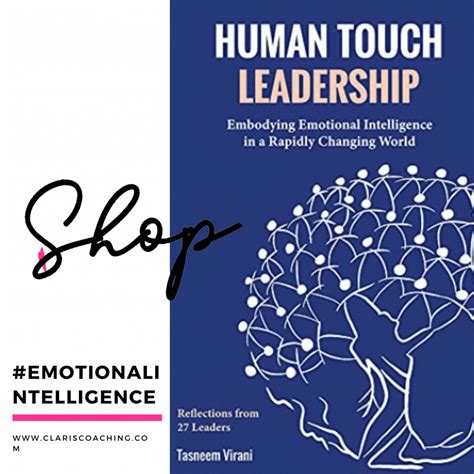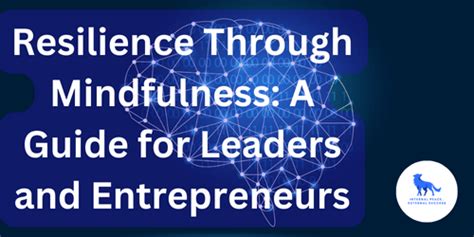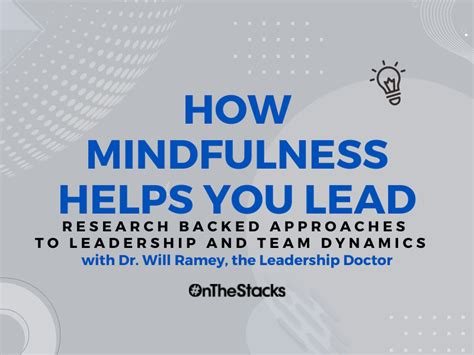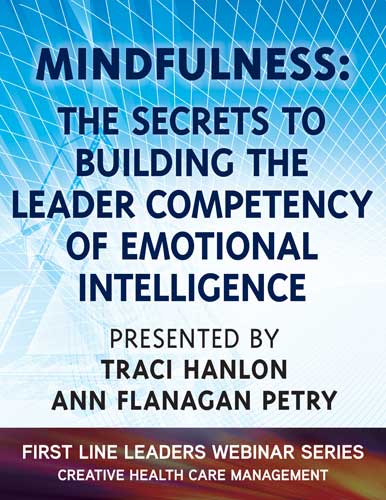In today’s fast-paced world, emotional intelligence has become a critical skill for personal and professional success. One powerful way to develop emotional intelligence is through the practice of mindfulness. Mindfulness involves being fully present in the moment, fostering a deeper connection with your thoughts, emotions, and environment. By cultivating mindfulness, individuals can improve their ability to understand and manage their emotions, leading to enhanced self-awareness, self-regulation, and stronger relationships with others. In this article, we will explore the link between mindfulness and emotional intelligence, uncovering how mindful practices can strengthen key aspects of emotional intelligence such as self-awareness, social awareness, and relationship management, ultimately contributing to better communication, leadership, and personal growth.
Come explore this topic with rosawblog.com for a deeper understanding.
1. Introduction
In a world where constant attention and rapid decision-making are the norm, emotional intelligence has become a crucial asset for personal and professional growth. It encompasses the ability to recognize, understand, and manage our own emotions, while also recognizing, understanding, and influencing the emotions of others. While many prioritize sharpening their technical skills, emotional intelligence is increasingly acknowledged as a vital component of effective leadership, successful communication, and overall well-being.
Mindfulness is a highly effective method for cultivating emotional intelligence. It involves paying complete attention to our thoughts and feelings without judgment. By staying present and engaged with our inner experiences, we develop a deeper understanding of our emotional patterns. This allows us to react to situations with more composure and thoughtfulness. The benefits of mindfulness extend beyond self-awareness; it significantly contributes to managing our relationships, engaging with others empathetically, and strengthening our overall emotional resilience.
This article explores the profound connection between mindfulness and emotional intelligence. We will examine how mindfulness can cultivate self-awareness, self-regulation, social awareness, and relationship management. Furthermore, we will offer practical strategies for integrating mindfulness into daily life to nurture emotional growth and enhance essential soft skills.

2. What is mindfulness?
Mindfulness is the practice of focusing your full attention on the present moment, observing your thoughts, emotions, and sensations without judgment. Rooted in ancient meditation traditions, mindfulness has been adapted for modern life as a powerful tool for mental and emotional well-being. It encourages individuals to be fully present in their current experience, rather than dwelling on the past or worrying about the future. This heightened awareness fosters a greater sense of clarity and calmness.
Mindfulness is not about silencing the mind, but rather about observing thoughts without judgment. This allows individuals to respond to their emotions with consideration, rather than reacting impulsively. Mindfulness practices can be as simple as focused breathing or deep concentration, or involve more structured meditation sessions. With consistent practice, mindfulness cultivates mental resilience, enhances focus, and fosters a more compassionate understanding of oneself and others. Within the framework of emotional intelligence, mindfulness is a crucial skill for enhancing self-awareness, regulating emotions, and navigating social interactions with greater effectiveness.

3. Benefits of mindfulness for emotional intelligence
Mindfulness significantly contributes to the development of emotional intelligence. By engaging in mindfulness practices, individuals cultivate a deeper understanding of their own emotions, thoughts, and reactions. This increased self-awareness enables them to identify and comprehend their emotional triggers and patterns, a fundamental element of emotional intelligence. As a result, individuals can recognize emotions as they emerge, fostering more deliberate and thoughtful responses instead of impulsive reactions.
Mindfulness fosters self-regulation by creating a mental buffer between emotions and actions. This enables individuals to manage stress more effectively, maintain composure under pressure, and make decisions with greater clarity. Moreover, mindfulness enhances social awareness by encouraging individuals to become more attuned to the emotions and needs of others. This cultivates empathy, which is fundamental for building robust and positive relationships.
Mindfulness, when integrated into daily life, empowers individuals to manage relationships more effectively. This is achieved by cultivating improved communication and conflict resolution skills. By staying present and mindful during interactions, individuals can listen more attentively, respond with empathy, and foster trust and rapport. This makes mindfulness a valuable asset for enhancing emotional intelligence across all areas of life.

4. How mindfulness can improve self-awareness
Mindfulness significantly enhances self-awareness by guiding individuals to pay close attention to their thoughts, emotions, and physical sensations in the present moment. Through mindfulness practice, individuals develop the ability to observe their mental and emotional states without judgment, fostering a clearer understanding of their inner experiences. This non-reactive awareness sheds light on patterns of thought and emotion that might go unnoticed, providing deeper insights into how triggers and situations affect their feelings and actions.
By recognizing these emotional patterns, individuals gain the tools to better manage their reactions. Mindfulness empowers them to pause and reflect before acting impulsively, preventing emotional overwhelm. This increased self-awareness fosters intentional decision-making, guided by a clear understanding of emotions rather than automatic responses.
Furthermore, mindfulness allows individuals to realign with their fundamental values and intentions, guiding them towards actions that reflect their authentic selves. Through increased self-awareness, mindfulness cultivates emotional intelligence by equipping individuals to explore their inner landscape with heightened clarity and purpose.
5. How mindfulness can enhance self-regulation
Mindfulness empowers individuals to regulate their emotions by fostering a conscious space between experiencing a feeling and reacting to it. Mindful practices cultivate the ability to observe emotions without immediate response, enabling individuals to gain control over impulsive behaviors and emotional reactions. This skill is especially crucial in stressful or conflict-ridden situations, where reactive actions can result in detrimental consequences.
Mindfulness cultivates emotional resilience by fostering a calm and balanced state of mind. Through increased awareness of emotions as they emerge, individuals gain the ability to regulate their responses. Instead of reacting impulsively to momentary emotional surges, they can make choices that align with their values and goals. This conscious regulation prevents knee-jerk reactions, allowing individuals to maintain composure and make decisions with greater clarity.
Mindfulness fosters reflection, enabling individuals to analyze situations with more depth and clarity. Through consistent practice, this cultivates emotional discipline, empowering people to face challenges with a calm and focused perspective. Ultimately, mindfulness promotes self-regulation by fostering emotional control, facilitating effective behavior management and leading to…
6. Practicing mindfulness for social awareness
Mindful social awareness goes beyond focusing on personal emotions and extends to recognizing and understanding the emotions and needs of others. This practice fosters heightened presence and attentiveness during social interactions, allowing individuals to notice subtle cues like body language, tone of voice, and shifts in emotional states. By fully engaging in conversations, individuals gain a deeper insight into the feelings and viewpoints of those around them.
An enhanced awareness of social dynamics cultivates empathy, a vital component of emotional intelligence. When individuals are mindful, they are more inclined to listen attentively, free from judgment, and driven by genuine curiosity. This fosters an environment conducive to deeper and more compassionate connections, empowering them to respond to others with support and sensitivity.
Mindfulness helps individuals identify their own biases and assumptions, which can distort their perceptions of others. By fostering a non-judgmental mindset, people can more readily understand diverse viewpoints and cultivate stronger, more positive relationships. Ultimately, mindfulness enhances social awareness by cultivating empathy, active listening, and a deeper understanding of the emotional experiences of others.
7. Cultivating mindfulness for relationship management
Mindfulness cultivates deeper, more authentic relationships by enhancing our ability to connect with others. When we practice mindfulness, we become fully present in our interactions, improving our communication and responsiveness. This presence allows us to listen more attentively, understand others’ perspectives more clearly, and respond with greater empathy and consideration.
Mindfulness is also a valuable tool for managing conflicts and navigating challenging conversations. When individuals practice mindfulness, they can stay calm and composed, allowing them to approach disagreements with a balanced mindset. This prevents reactive responses and enables them to address issues constructively. This balanced approach fosters open dialogue and mutual understanding, crucial elements for resolving conflicts and maintaining healthy relationships.
Moreover, mindfulness promotes self-awareness of personal needs and emotions, allowing individuals to communicate their feelings and boundaries with greater clarity. This clear and mindful communication helps prevent misunderstandings, fostering trust and respect within relationships.
Mindfulness cultivates patience and tolerance, crucial elements for successful relationship management. It fosters a non-judgmental approach to interactions, enabling individuals to accept others as they are and respond with compassion. By enhancing communication, empathy, and emotional regulation, mindfulness ultimately enriches the practice of relationship management.
8. Tips for incorporating mindfulness into daily life
Bringing mindfulness into your daily routine can be both straightforward and beneficial. Here are a few practical suggestions to help you get started:
Start Small: Begin your mindfulness practice with short, manageable sessions. Even a few minutes of focused breathing or meditation each day can have a positive impact. As you become more comfortable, gradually increase the duration of your practice.
Create a Routine: Set aside a specific time each day for mindfulness practice. This could be in the morning, before bed, or any other time that works for you. Regular practice will help you turn mindfulness into a habit.
Practice Mindful Moments: Integrate mindfulness into your daily routines, like eating, walking, or even your commute. Pay close attention to the sensory details of these moments, such as the taste of your food or the feeling of your feet on the ground.
Practice Mindful Breathing: Throughout the day, take a few moments to focus your attention on your breath. Deep, slow inhalations and exhalations can help to center your mind and reduce feelings of stress.
Be Present in Conversations: When engaging with others, dedicate your complete attention to them. Refrain from multitasking and practice active listening, paying close attention to both their spoken words and body language.
Use Mindfulness Apps: Consider using apps specifically designed for mindfulness and meditation. These apps can provide guided practices and helpful reminders to keep you engaged in your mindfulness journey.
Reflect on Your Day:
Take a few minutes each evening to reflect on your day. Notice moments where mindfulness brought you peace and clarity, and identify areas where you can cultivate more mindfulness in the future.
Incorporating these practices into your daily life allows mindfulness to become a natural and beneficial aspect, fostering emotional intelligence and promoting overall well-being.
9. Conclusion
Mindfulness practices offer profound benefits for both personal and professional growth. By cultivating a deeper understanding of your own thoughts, feelings, and reactions, you gain greater control over your emotions and develop a higher level of emotional intelligence. This enhanced self-awareness allows you to respond to situations with greater clarity and composure, ultimately leading to stronger personal and professional relationships and improved ability to navigate stress and challenges.
Mindfulness is key to enhancing social awareness and empathy. When fully present in interactions, you can better grasp and respond to others’ emotions and needs, forging deeper and more meaningful connections. This heightened social awareness, combined with improved self-regulation, facilitates more effective relationship management, allowing you to communicate more openly and resolve conflicts constructively.
Making mindfulness a regular part of your life can be a powerful way to transform yourself. Whether you commit to formal meditation sessions or simply bring mindful awareness to everyday moments, these practices can strengthen your emotional resilience and enhance your overall well-being. By incorporating mindfulness into various aspects of your daily routine, you can cultivate greater emotional intelligence, leading to more balanced, compassionate, and fulfilling relationships. Embracing mindfulness is a journey toward greater self-understanding and improved connections with others, ultimately contributing to a more harmonious and emotionally intelligent life.
rosawblog.com
